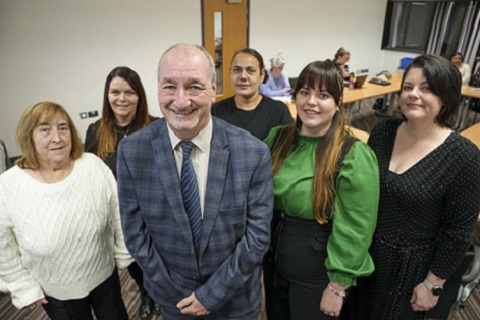Dr Elle Boag, Associate Professor in Applied Social Psychology at Birmingham City University, explains why the world was consumed with the search for the Titanic submersible, and why grieving for others – even persons unknown to us - is a natural human response.
Dr Boag says: “There are a myriad simple and complex reasons why we were hyper-focussing on the fate of the five crew members onboard the missing OceanGate underwater vessel.
“These include how sociable we are, our level of negativity bias, our mental health status, the level of exposure to information about the “crisis” and importantly our level of empathy toward others to name but a few. In addition, during any crisis, especially at the beginning, the high level of uncertainty leads to many questions and few answers; in this case we know that the crew are bolted inside the submersible, where they entered the water and where they were headed, but we do not know where they are, and what has happened that made them go off course.
“Underpinning all these factors was the issue of the time-limited oxygen supply to the crew bringing about a sense of urgency, heightening anxiety, panic and in many eliciting a sense of mortality salience (something considered by many to be a unique characteristic of humankind), thereby reminding us of the tenuous balance between life and death.
“When a crisis involves immersion through 24/7 media coverage a normal reaction is grief, either complicated or re-emerged grief. Grief is a normal and healthy human process and to a great extent demonstrates our level of empathy, either toward oneself (to reduce negative effects in oneself) or toward others (to reduce negative effects in another person).
“If you feel that your experience of grief is overwhelming, there are excellent resources available if you need to speak to someone as you experience and process what are difficult emotions or feelings, including your own GP as well as professionals who are trained to support you through such difficult time, such as local NHS and private mental health professionals and grief counsellors who you can speak to in person or online.”












